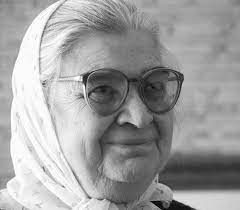The Children’s Book Council of Iran
IBBY, communism and activism across party lines
Throughout its history, IBBY sections around the world have worked within diverse political and social contexts that impact and shape their advocacy in meaningful ways. This includes people working towards common goals on opposite sides of major conflicts and wars. This article focuses on the Children’s Book Council of Iran (CBCI), an independent non-profit organisation that has been the Iranian section of IBBY since 1964. Beginning with an introduction to the political context surrounding the CBCI and its influential co-founder Touran Mirhadi, I discuss what IBBY members and other literacy activists might learn from Iran about how to handle challenging political situations today.
Since its inception, the CBCI has been a major player in the development of Iranian children’s literature. Contemporary Iranian children’s literature is particularly well-developed and sophisticated, indeed more so than Iranian literature for adults, and has been remarkably successful internationally. The CBCI is one of the institutions responsible for this success, alongside others such as the institute for the Intellectual Development of Children and Young People, known as the Kanun, which is a government body with a relatively high degree of independence, responsible for the publication and distribution of children’s books. In continuous operation since the 1960s, through regime changes and substantial political and social upheaval, the CBCI promotes research into Iranian children’s literature, maintains a research library, supports educational programmes related to literacy within Iran and nominates for national awards, as well as promoting the translation and recognition of Iranian children’s literature internationally, through working with IBBY, the International Youth Library, UNICEF and the UNHCR (the UN Refugee Agency).
The CBCI’s flagship project, and what it is perhaps best known for internationally, is the production of the Iranian Encyclopaedia for Young People. This project was launched in 1980 and was the work of a lifetime for Touran Mirhadi, a progressive education pioneer and co-founder of the CBCI. The Encyclopaedia was envisioned as a 25-volume, 5,000 entry reference text aimed at Iranian children and young people from 10–16 years old. The first volume was published in 1991, and the 20th was released in 2021, with work continuing to this day. Mirhadi and her colleagues were inspired to launch this incredibly ambitious project by their feeling that existing encyclopaedias for young people, even when translated into Farsi, were poorly suited to the needs of young people in Iran. Some explain this as being due to an emphasis on facts not relevant to Iran, such as North American plants and animals and the US, while others point to more ideological concerns, such as Western-centric narratives about the global history of intellectual development and the history of Islam. The Encyclopaedia is produced in collaboration with an advisory group made up of young people, making it a project by and for the Iranian youth.
The Encyclopaedia, like the rest of the CBCI’s work, did not come about in a political vacuum. As elsewhere in the world, translation and book publishing, including children’s books, were key elements of the soft-power propaganda war waged between West-aligned, communist, and local religious and nationalist powers competing for influence in Iran throughout the 20th century, and indeed into the 21st.
Perhaps the most notable example of foreign political influence on publishing in Iran, and one which would directly influence the CBCI’s work, was the US-sponsored Franklin Book Program. Franklin was a non-profit organisation, ostensibly independent but in fact organised, funded and to a certain degree directed by the Information Agency of the US State Department, which sought to improve public attitudes towards the US and combat Soviet influence across the Middle East and the Muslim world through supporting the development of local publishing infrastructure and translating carefully selected American books into local languages. Alongside Egypt, Iran was the programme’s largest and most successful operation. Notably, it produced many books for children, constituting nearly the same proportion of their operation as literature for adults, including textbooks and reference works, often with original illustrations, something for which Iranian children’s literature is internationally renowned to this day. The CBCI could not help but interface with Franklin-sponsored initiatives, given the importance of their impact on the Iranian literary landscape between the 1950s and the 1970s. Notably, Franklin was behind the publication of the translated children’s encyclopaedias whose US-centric content directly inspired Mirhadi and her colleagues at the CBCI to begin their own encyclopaedia project.
With the shuttering of the Franklin Book Programs in 1978 (shortly after the Tehran office began operating independently in 1976) and the Islamic Revolution in 1979, the CBCI and their colleagues in children’s publishing and education found themselves operating in a very different political context. Like the US had before them, the Islamic government recognised children’s literature as a powerful tool for helping raise a generation of citizens politically and ideologically aligned with their agenda, and promoted the production and distribution of religious and nationalist works through the government-run Kanun institute. On the other hand, children’s literature offered an opportunity for authors and publishers to avoid censorship through the use of child characters who were less subject to morality laws, and by using allegory to address political and social themes which would not otherwise be tolerated by the regime. Although government run, the Kanun is responsible for its own censorship and its products do not have to go through the government’s central Ministry of Culture and Islamic Guidance agency, while the CBCI, with its strong international connections, continued to operate independently of the government, and does so to this day.

Jella Lepman

Touran Mirhadi
Why this whistle-stop tour of cultural policy in Iran in the 20th century? What does this have to do with IBBY? The answer begins with the relationship between Touran Mirhadi and IBBY co-founder Jella Lepman. At the 36th Annual IBBY Congress in 2018, Leila Maktabi Fard gave a speech describing the many parallels between the lives and work of Mirhadi and the iconic IBBY co-founder Lepman. Born a generation apart, Lepman in 1891 and Mirhadi in 1927, both women were shaped by German literary traditions, Lepman through her early life in Germany, and Mirhadi thanks to her German mother. Both women were widowed as young mothers, and both saw loved ones’ lives destroyed by war and political conflict. Professionally, both lost beloved jobs at least once for political reasons (Lepman was fired for being Jewish in Germany in 1933, while Mirhadi lost her job at the school she founded after the Islamic Revolution). Both launched children’s book exhibitions that led to the founding of influential and long-standing institutions promoting children’s literature, namely the International Youth Library and the CBCI. Both were horrified by child labour, specifically the young children who wove Persian carpets in Iran, and both were concerned about the negative effects of modern media such as radio, television and cinema on children.
Fard was certainly not wrong to draw these parallels between two remarkable women. However, it is also important to understand the major political and ideological differences which divided Mirhadi and Lepman, and thus to some extent the CBCI and the central IBBY organisation. Lepman’s work in Germany in the 1940s, which led to the founding of the International Youth Library and, eventually, IBBY itself, was initiated and sponsored by the US military as part of its reconstruction plan for Germany after the Second World War. Lepman held an honorary military title and was a strong proponent of the US-style liberal democracy, working throughout her life with US-aligned and sponsored organisations explicitly dedicated to fighting communism around the world. In 1946, when Lepman was flying to Germany in a US military uniform, Mirhadi was enrolling at the Sorbonne in Paris to study education. Inspired by the left-wing politics she encountered there, Mirhadi became heavily involved in labour and union movements. She was at one point asked to represent Iran at the Women’s International Democratic Federation (WIDF) which was an anti-fascist, pro-communist feminist organisation often described as existing ‘behind the Iron Curtain’. Mirhadi’s husband, Jaffar Vakili, was a member of the communist Tudeh party of Iran, and was executed in 1954 after the US-supported overthrow of Mossadeq. This was as part of efforts to eliminate that party, which was seen by the US and their allies as a major threat to the new regime and a powerful communist foothold in the region. In short, due to their respective national origins and the circumstances of their lives, these two women were impacted very differently by US military and cultural hegemony in the 20th century. The same power that Lepman experienced as liberating and democratising in Europe, was felt by Mirhadi some decades later in the Middle East, as oppressive and colonial. Both women were politically engaged throughout their adult lives, but often on opposite sides of the Cold War conflict that defined the 20th century.
Despite these clashing ideologies, Lepman and Mirhadi knew and respected each other personally and professionally. Although it is to frame this purely as a successful instance of moving beyond divisive political rhetoric in service of a greater humanitarian good, there is something more at stake. In her speech, Fard minimises the importance of party politics in Mirhadi’s life. She states (somewhat unconvincingly) that Mirhadi was merely ‘a supporter of left parties’ but that she was ‘never known as a political activist’, and notes approvingly that the CBCI never ‘lost their independence … nor accepted a dime from the [Iranian] government’. Although the latter is true, there is a double standard here: Fard notes without apology that Lepman received support from the US army. ‘Humanitarian missions’, she states, ‘can be far beyond politics’, and yet only Mirhadi’s left-wing work is framed as apolitical and ‘independent’.
If literacy activists are to build sustainable alliances with people and organisations whose politics are not aligned with their own, it is not enough to simply wave away those differences as though they are not significant. Mirhadi’s work, including the Encyclopaedia, was deeply informed by her leftist and anti-imperialist politics, and it is wrong to suggest otherwise. Likewise, IBBY would not be the institution it is today without the doors opened by Lepman’s American government and military connections. The challenges presented by the kind of complex political contexts described here did not disappear when Cold War dynamics shifted at the end of the 20th century. Embracing this and facing uncomfortable differences better enables IBBY to support and uplift each national section with a full understanding of the challenges they face. Individuals who believe in the power of reading must not shy away from divisive political issues, but rather acknowledge the inextricable link between children’s literature and politics as they work to continue bringing books and children together.
Works cited
Children’s Book Council of Iran (2023 [2018]). https://cbc.ir/en/children-and-young-adults-literature/ (accessed 10/2/2024).
Fard, L.M. (2019) Tooran Mirhadi and Jella Lepman: Two Women, Two Continents, One Aspiration. Bookbird: A Journal of International Children’s Literature, 57(3) pp.34–41.
Gould, Rebecca and Tahmasebian, Kayvan (eds) (2020) The Routledge Handbook of Translation and Activism. Abingdon: Routledge.
de Haan, F. (2010). Continuing Cold War Paradigms in Western Historiography of Transnational Women’s Organisations: The Case of the Women’s International Democratic Federation (WIDF). Women’s History Review, 19(4) pp.547–573.
Nanquette, L. (2021) Iranian Literature after the Islamic Revolution: Production and Circulation in Iran and the World. Edinburgh: Edinburgh University Press.
Page, L. (2021) Focus IBBY. Bookbird: A Journal of International Children’s Literature, 59(3) pp.91–95.
Robbins, L.S. (2007) Publishing American Values: The Franklin Book Programs as Cold War Cultural Diplomacy. Library Trends, 55(3) pp.638–650.
Emma Page is a translator and an Arts and Humanities Research Council (AHRC)-funded PhD candidate based at the University of Reading’s Centre for Book Cultures and Publishing. Her research focuses on international children’s literature activism and translation for children in the UK today.
